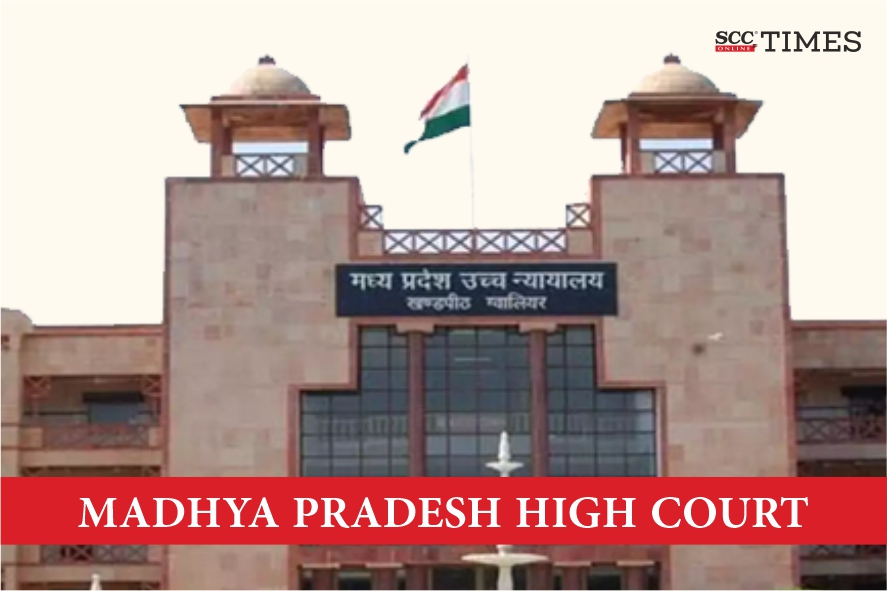Madhya Pradesh High Court: In a case dealing with minor sexual assault survivor’s right to continue Pregnancy, a writ petition was registered upon a reference made by Additional Sessions Judge with regards to whether the decision of the pregnant minor and her parents to continue with the pregnancy must be respected despite the pregnancy arising out of sexual assault. Deciding the case, a single-judge bench of Vinay Saraf, J., upheld the reproductive autonomy of the minor and her guardians. The Court held that under the facts of the present case, no direction for medical termination can be issued, especially when the victim and her parents have explicitly chosen to continue the pregnancy.
The instant petition was registered upon a reference made by the 4th Additional Sessions Judge, Nainpur, District Mandla. The reference informed the Registrar General of the High Court that, during the investigation of Crime No. 26/2025 registered at Police Station Khatia under the provisions of the Bharatiya Nyaya Sanhita, 2023 and POCSO Act, it was found that the minor victim was pregnant.
The Gynecologist from District Hospital Mandla opined that the fetus was approximately 29 weeks and 6 days old as of 14-05-2025. The medical opinion highlighted the risk to the minor’s life if a termination of pregnancy were to be attempted at such an advanced stage. Along with the reference, a letter signed by the victim and her parents was annexed, in which they expressed a clear intention to continue with the pregnancy and to give birth to the child.
Court on minor sexual assault survivor’s right to continue Pregnancy
The Court noted that as per Section 3 of the Medical Termination of Pregnancy Act, 1971, a registered medical practitioner may terminate a pregnancy up to 20 weeks, between 20 and 24 weeks, termination is permissible by two registered medical practitioners under specific conditions and beyond 24 weeks, the matter must be referred to the High Court, which may invoke its jurisdiction under Article 226 of the Constitution of India.
The Court emphasised on the primacy of a woman’s right to make decisions regarding her pregnancy as part of her personal liberty under Article 21 of Constitution of India. The Court noted that the Division Bench of this Court in, In Reference (Suo Motu) v. State of M.P., 2025 SCC OnLine MP 1533, laid down a detailed procedure for handling cases involving pregnancies exceeding 24 weeks arising out of sexual assault, rape, or incest.
The Court cited X2 v. State (NCT of Delhi), (2023) 9 SCC 433, where the Supreme Court elaborated on the constitutional values of reproductive autonomy. The Court referred to A (Mother of X) v. State of Maharashtra, 2024 SCC OnLine SC 608, where the Supreme Court allowed the termination of a 30-week pregnancy of a 14-year-old rape survivor. However, when the minor and her parents later chose to carry the pregnancy to term, the Court upheld their decision and issued fresh directions, holding that such decisions must respect the pregnant person’s autonomy.
The Court asserted that the Supreme Court has underscored that a pregnant person’s decision should be central to the evaluation under Section 3(3) of the MTP Act and that State or judicial authorities cannot override a well-considered choice to continue with the pregnancy.
In the present case, the Court noted that the minor and her parents unequivocally opted to continue the pregnancy, the fetus is beyond 29 weeks and termination posed life-threatening risks to the minor and the medical opinion supported the continuation of the pregnancy under careful supervision.
Hence, upholding minor sexual assault survivor’s right to continue pregnancy, the Court held that no direction for medical termination of pregnancy can be issued. The Court disposed of the petition with the following mandatory directions to the State Government —
- Provide all available medical facilities through a specialist team to support safe childbirth.
- The entire cost associated with childbirth shall be borne by the State.
- Ensure proper care during pregnancy, delivery, and postnatal period.
- Post-delivery, the State must take responsibility for the care of the child as per established norms.
- The child shall be provided with free education up to Class 12th.
- All necessary medical care shall be provided to the child until they attain majority.
-
The identity of the minor victim and the child shall not be disclosed in any manner.
The Court also directed the State to consider formulating a policy for comprehensive support, food, shelter, education, and safety—for children born to survivors of rape, sexual assault, or incest.
[Prosecutrix X v. State of M.P., 2025 SCC OnLine MP 4005, Decided on 22-05-2025]
Advocates who appeared in this case:
Shri Girish Kekre, Government Advocate, Counsel for the Respondents/State



